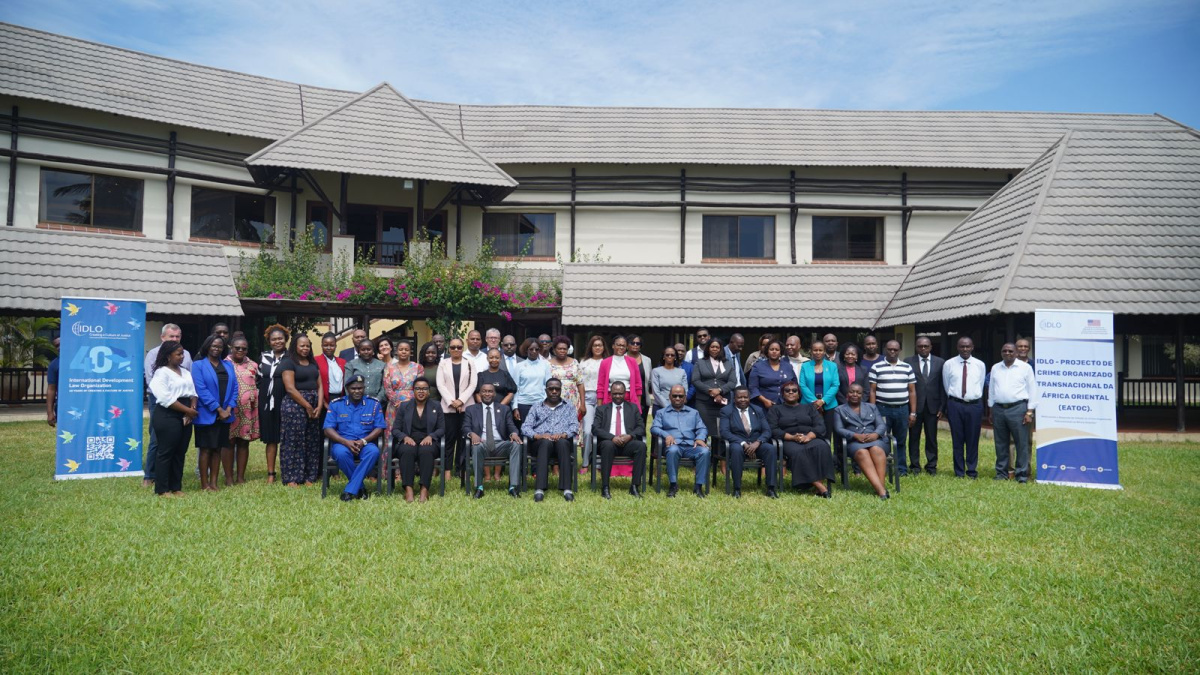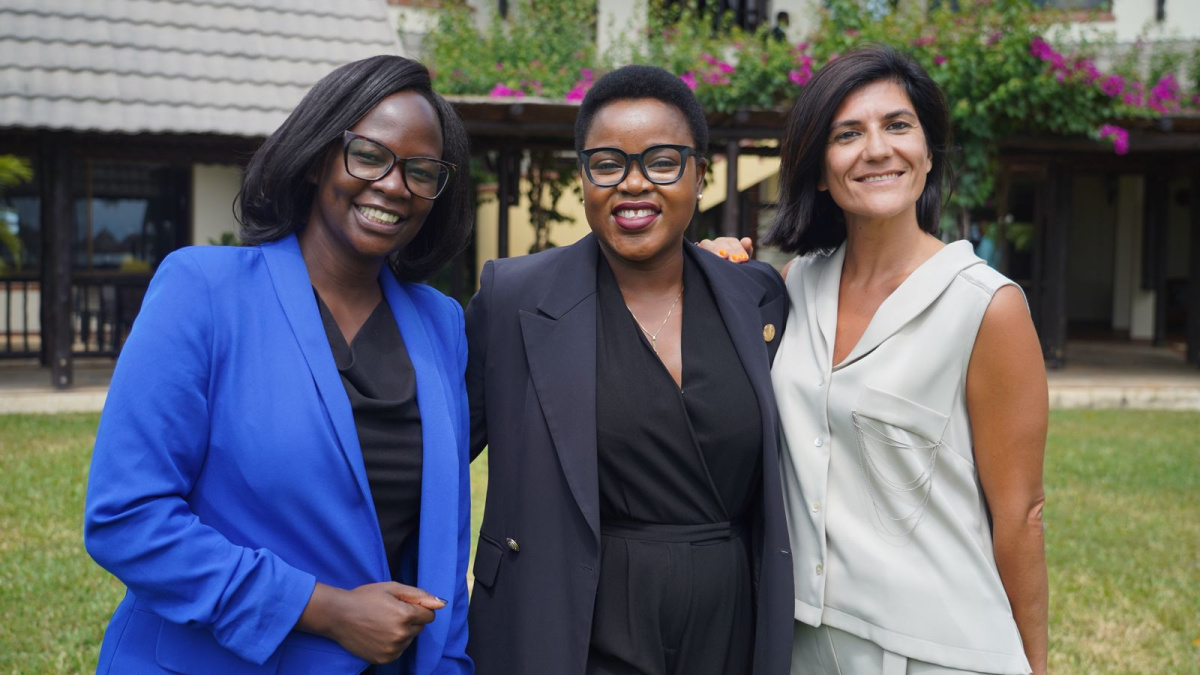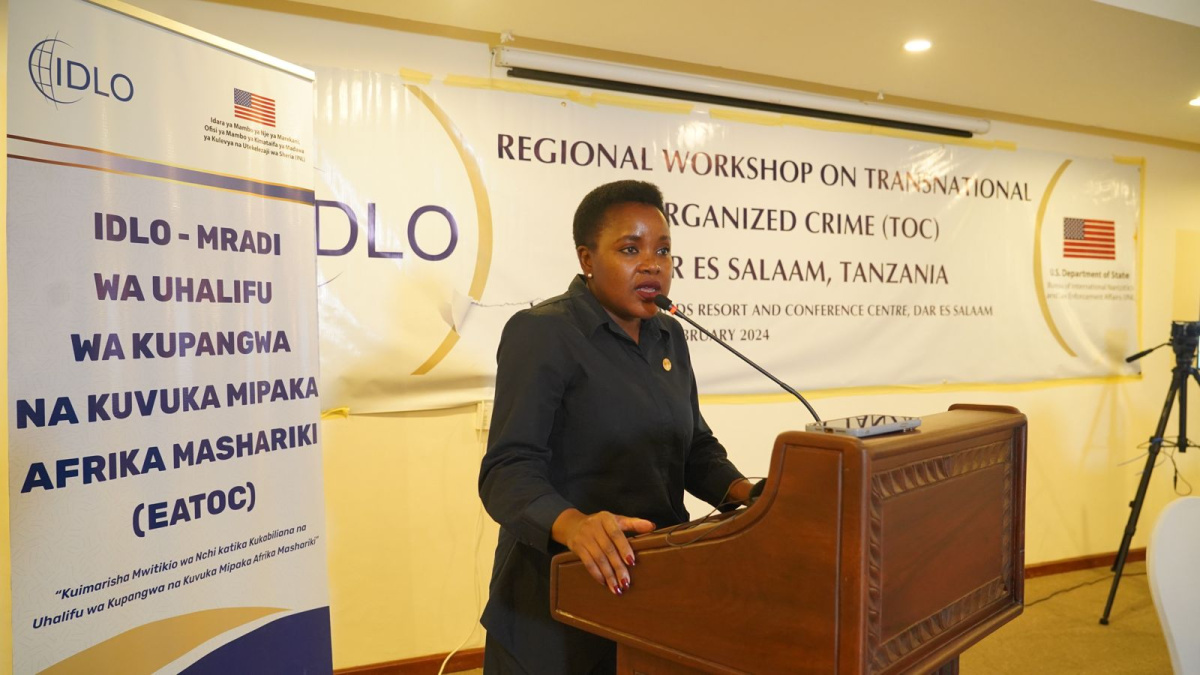
Transnational organized crime (TOC) erodes the rule of law and destabilizes law enforcement structures across countries, thereby undermining the authority and effectiveness of State institutions. TOC can lead to weakened governance, corruption and lawlessness, posing a substantial threat to a country’s safety and security and derailing sustainable development efforts.
In East and Southern Africa, a surge in criminal activity and weak regional resilience makes increasing cross-border cooperation to address TOC an urgent priority. Common regional challenges include weak enforcement of regional and domestic legal frameworks; limited capacity to respond to corruption, illicit financial flows, asset forfeiture, recovery and management; and inadequate cross-border coordination.
A rule of law approach, focused on improving governance, strengthening policy and legal frameworks and enhancing the capacities and collaboration of legal and justice actors, is essential in combating these crimes. These interventions help to build trust between institutions and the people they serve, which contributes to reducing corruption. The rule of law also underpins human rights more broadly and facilitates sustainable social, political and economic development.
These issues were the topic of a two-day regional workshop on transnational organized crime convened by IDLO from 28 – 29 February 2024 in Dar Es Salaam, Tanzania. The workshop brought together investigators, prosecutors, judges and magistrates from Kenya, Mozambique and Tanzania to share reflections on the progress and challenges they had encountered when addressing TOC in their countries.

Some of these challenges, as Vicky Nabisenke from the East African Association of Prosecutors explained, centre on “communication barriers, mainly due to different languages…differences in legal frameworks, differences in procedural frameworks and financial, human, structural and technological resource needs.”
Others noted the need to adapt and respond to advances in technology that can facilitate TOC across the region.
“The rise of internet penetration and ICT usage in Africa has introduced a new dimension to organized crime in the form of cybercrime, further complicating the region’s ability to combat these multifaceted criminal activities,” said Justice Dr. Paul Kihwelo, Director of Tanzania’s Institute of Judicial Administration. “This growth in digital connectivity, while beneficial, has inadvertently facilitated the expansion of illicit activities, making cybercrime an increasingly significant concern within the region.”
The regional workshop on transnational organized crime was an initiative of IDLO’s project Strengthening State Responses to Transnational Organized Crime in East Africa, funded by the US Department of State’s Bureau of International Narcotics and Law Enforcement Affairs. Last year, the project conducted independent legal assessments of the national and regional policies and legal frameworks for the investigation, prosecution and adjudication of TOC in the three focus countries and made recommendations to strengthen them. IDLO also supported capacity needs assessments for the investigators, prosecutors and judges/magistrates who handle TOC, to identify gaps that could be addressed in future activities.
Participants at the regional workshop had a chance to discuss the findings of these assessments, and to interact with national and regional networks essential to strengthening cross-border cooperation amongst actors working on TOC.
“The fight against TOC cannot be won in isolation,” said Justice Luís António Mondlane, President of the Criminal Section of the Supreme Court of Mozambique. “It requires a concerted effort that transcends national jurisdictions and leverages the collective strengths and resources of our regional and global partners.”

At the close of the workshop, participants agreed on a set of six resolutions designed to shape legal reforms and capacity development interventions on TOC based on the specific needs of each country. They include recommendations to provide capacity development for all actors in TOC response, including on countering evolving technological advancements used by organized crime groups; to strengthen witness protection programmes; and to create a Regional Strategy on Combating TOC to support coordination and integrations across countries.
By harnessing the knowledge and expertise gathered over the last two days, IDLO hopes to build critical tools and networks to support legal reforms, capacity development and cross-country collaboration for better TOC prevention and response in Kenya, Mozambique and Tanzania.

